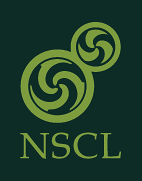Graduate Study
Nuclear theory is full of fascinating questions such as:
- How are quarks and gluons confined within protons and neutrons?
- How do protons and neutrons bind to form nuclei and what are the limits of stability?
- How can we accurately predict complex nuclear reactions?
- Why does emergent collective behavior appear in quantum many body systems?
- How and where were the chemical elements formed in the universe?
- What are the phases of nuclear matter under extreme conditions?
If some of these questions are interesting to you, then you might consider applying as a graduate student to join the Nuclear Theory Group at FRIB. We are composed of 12 faculty members, about 10 postdocs and fellows, and about 40 graduate students doing research on a wide range of topics. In addition to collaborating with our experimental colleagues at FRIB, our research program includes topics such as quantum chromodynamics, fundamental symmetries, physics beyond the Standard Model, nuclear forces, chiral symmetry, structure and reactions of atomic nuclei, simulations of cataclysmic astrophysical events, the creation of new elements, heavy ion collisions and matter under extreme conditions, and emergent phenomena such as superfluidity and collective behavior.
As a student at FRIB you will benefit from world class facilities and scientists in a stimulating intellectual environment that includes vibrant programs in experimental nuclear science and accelerator science, as well as the Joint Institute for Nuclear Astrophysics Center for the Evolution of Elements (JINA-CEE) and the FRIB Theory Alliance (FRIB-TA). Our group is one of the largest and most influential in the world. Many of our alumni have gone on to become prominent scientists at universities and laboratories as well as leaders in technology, industry, finance, and education.
We are part of the graduate program of the Physics and Astronomy Department at Michigan State University. If you are considering graduate school with us, the site links may be useful to you. If you have further questions, please contact us.
Please visit our YouTube channel and Research Highlights to learn more.
As a student at the Theoretical nuclear science department, you can take a part in many national and international events hosted in the lab, attend some fun events and activities for graduate students; you can get involved in NSCL/FRIB tours and open houses; attend lectures or concerts at Advanced Studies Gateway; and socialize with peers, faculty, and visitors over lunch, scientific coffee discussions; ice cream socials and holiday celebration gatherings at the Lab and the Nuclear Theory Group.




